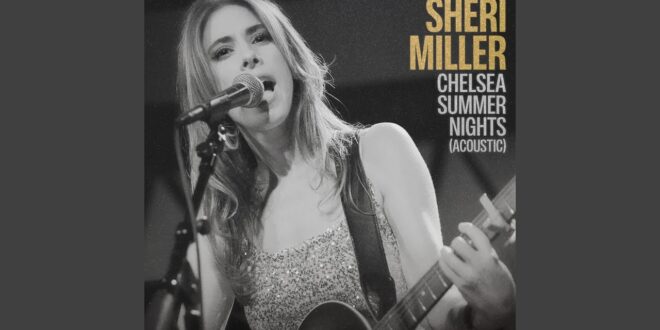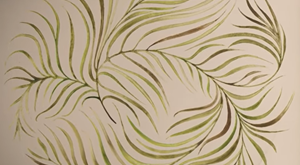Sheri Miller’s “Chelsea Summer Nights (Acoustic)” stands as a poignant and thoughtfully constructed meditation on the temporality of love, artistic identity, and place, presented through the acoustic folk tradition. Rooted firmly in the lyrical and cultural lineage of 1960s Greenwich Village, the track is an evocative return to the stripped-back songwriting ethos that once defined the singer-songwriter genre.
What is striking first and foremost is the song’s deliberate temporal layering. Miller invites the listener to occupy not just a physical space — the Chelsea Hotel and the West Village — but a historical one. The invocation of the Chelsea Hotel, once home to Dylan Thomas, Patti Smith, Leonard Cohen, and others, immediately situates the song in a lineage of literary and musical bohemianism. This isn’t nostalgia for nostalgia’s sake. Rather, Miller leverages that imagery to explore themes of artistic resurrection and memory-as-ritual.
The track’s arrangement mirrors this thematic intent. Featuring only acoustic guitar and layered, ethereal background vocals, the song resists modern production tropes in favor of a sparse aural environment where Miller’s voice can carry the weight of the lyricism. Her tone is unforced, intimate, and contemplative, recalling early Joni Mitchell and Laura Nyro, while the harmonic structure is simple but emotionally resonant — a reminder that minimalism, when paired with authentic expression, can be deeply affecting.
Lyrically, the song is intertextual. References such as “Rock and Roll Beauty” and “Bobby McGee” invoke Janis Joplin and Kris Kristofferson — touchstones for a particular brand of American musical romanticism. The line “I paid dearly for that fare / I paid with my soul, my heart laid bare” echoes the trope of artistic sacrifice, as does “You said we are the fortunate few / Who have the gift of words set to / Songs of hallelujah-lu.” Miller sees songwriting as both sacred and scarring, an idea central to her broader artistic project.
What also warrants attention is the song’s explicit philosophical stance. In the refrain “Time marches on / But you are my truth,” Miller offers a lyrical meditation on constancy and impermanence. Time — the inevitable force — does not erase the truth of emotional memory. This notion is deepened by the final refrain, “I’m not afraid to die,” a lyric that feels both literal and metaphysical, suggesting a transcendence available only through love and art.
Sheri Miller’s career, from her collaborations with iconic musicians to her sophisticated solo discography, reinforces the legitimacy of this work within both mainstream and academic canons. Her intention— “to help us remember how powerful, gorgeous, and good we truly are” — is not mere sentiment but rather a core aesthetic principle. “Chelsea Summer Nights (Acoustic)” is a paradigmatic example of this philosophy in action, offering a space where artistic selfhood and romantic longing converge.
In sum, Miller’s acoustic revision is not merely a new version; it is a reinvestment in authenticity, temporality, and lyrical resonance — a contemporary folk elegy that deserves serious consideration.
Mark Druery
 IndieShark Music News, Reviews & Interviews
IndieShark Music News, Reviews & Interviews



